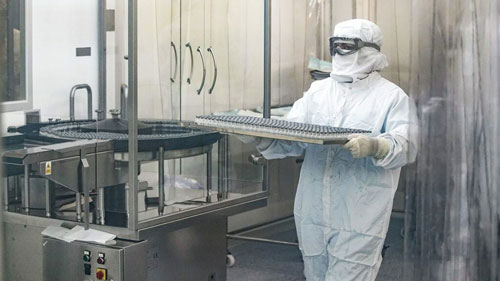HAVING licensed vaccines will not be sufficient to stop the pandemic, a new opinion piece states. The scale of production, affordability, global allocation, and local community deployment of vaccines will be the key to efficient control.
Vaccine hesitancy can also hamper efforts, and governments need to actively raise public confidence, especially in disadvantaged groups.
A traffic light system devised by the authors allows the comparison of the leading 26 vaccines according to characteristics such as price, manufacturing capacity, efficacy, and storage requirements.
At the beginning of February 2021, 289 experimental vaccines were in development. So far, 20 candidates have reached the critical phase 3 of clinical trials, and five have received authorization for use by one of the stringent regulatory authorities on the World Health Organisation’s (WHO) list.
A recent health policy opinion piece, published in The Lancet on 12 February, reviews four interconnected challenges to the success of vaccination schemes: production, affordability, allocation, and deployment of the vaccines.
Stay informed with live updates on the current Covid-19 outbreak and visit our coronavirus hub for more advice on prevention and treatment.
Public health policy, vaccination, and infectious disease experts from the United Kingdom, United States, Thailand, and Singapore co-wrote the paper, making a series of recommendations.
“Several manufacturers have successfully developed Covid-19 vaccines in under 12 months, an extraordinary achievement. But the stark reality is that the world now needs more doses of Covid-19 vaccines than any other vaccine in history in order to immunize enough people to achieve global vaccine immunity. Unless vaccines are distributed more equitably, it could be years before the coronavirus is brought under control at a global level.”
– Lead author, Dr. Olivier Wouters, from the London School of Economics and Political Science, U.K.
The authors of the paper highlight that 10 vaccine developers have predicted that they will be able to produce 1 billion or more doses this year, and a further nine developers have estimated capacities of up to 700 million a year.










